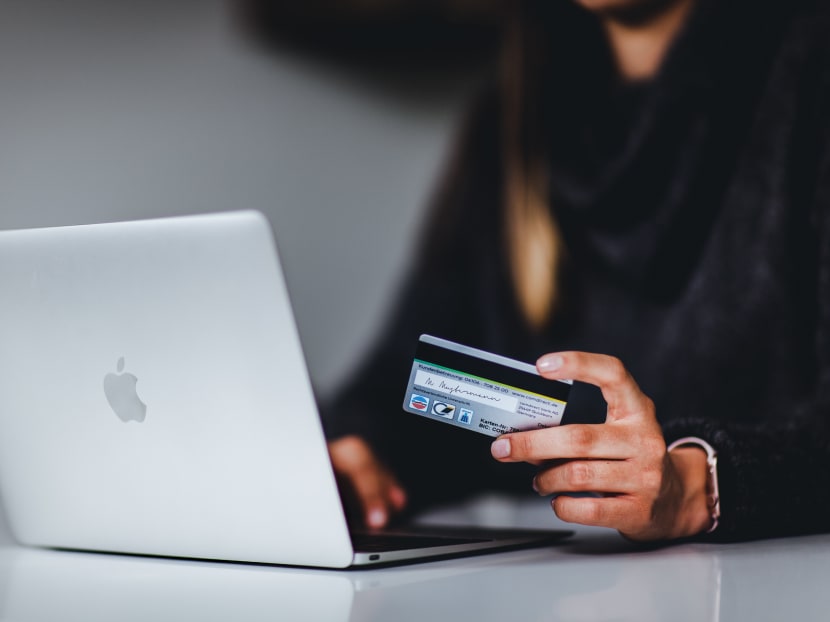Why we lose track of spending in a cashless society
What looks like fraud, feels like fraud but isn’t fraud?

Consumers now regularly spend cash without clearly perceiving how they spend their money, says the author. The pandemic, with its shift to contactless or online spending, has served to catalyse the process further.
What looks like fraud, feels like fraud but isn’t fraud?
What about a company website that pops up when you search for the government agency that issues driving licences, and charges a handsome fee for forwarding your details to the real website?
Personal finance campaigners have been complaining about such sites for years, but I think there is a broader lesson to be drawn about the way we spend our money these days.
Between outright fraud and honest commerce there may be a sharp legal line — but economically and psychologically the distinction is a gradual blur.
I worry that we now live in that blur, spending cash without clearly perceiving what happened.
The pandemic, with its shift to contactless or online spending, has served to catalyse the process further.
Consider the scam-adjacent website: The principal service it provides is to solve a problem it has paid to create — namely that the official website isn’t as prominent in web searches as it might be.
The near-valueless service, however, is described unambiguously and the website states plainly that it is not an official site.
So who would knowingly use such a service? My wife recently did.
And it is self-evident that my wife is a person of the most refined wisdom and discernment. So how did this calamity occur?
My wife handed over about £100 for nothing of value because her technology made it so easy.
She didn’t notice the disclaimer because she was distracted and multitasking. She applied via a mobile phone, her browser preloaded with credit card details.
On such a tiny screen, hints of trouble pass unseen.
We’re warned to be careful of the small print, but on a mobile phone, all the print is small print.
This is why I argue such websites exist on a continuum. There’s the outright fraudster who tries to panic you into sending thousands of pounds to avoid ruin or prison.
Then there’s a blue-chip website such as Amazon, which undoubtedly provides a real service, but would be delighted to make it easier for customers to spend impulsively.
Amazon famously secured an absurd patent on “one-click” online retail ordering in 1999. (Steve Jobs, with typical foresight, immediately licensed it for Apple for a miserly million dollars.)
That patent has now expired, but Amazon is still keen to make spending effortless.
Every time I use my phone to check the sales rank of my book on the Amazon website — roughly every 27 minutes — Amazon urges me to download its app.
I don’t doubt that the app would work better, which is why I don’t want it.
In their book Nudge, Richard Thaler and Cass Sunstein urge regulators and companies to “make it easy” for people to do the right thing — such as pay taxes, sign up as an organ donor or save for a pension.
As Thaler and Sunstein well know, nudges can also be used to “make it easy” to do other things, too — such as send money to a near-valueless licence-application service.
The logical extreme is the endlessly renewable subscription.
Alongside the familiar bills for utilities, internet, mobile phone and mortgage, our household subscriptions include services as varied as an online yoga resource, access to all the Star Wars and Marvel movies, a Patreon campaign, wine, Amazon Prime, Microsoft Office, Adobe Photoshop, apps for mindfulness, language learning and productivity, two cloud storage services, unfettered access to BoardgameArena and a music bot on Discord.
Some of that will be incomprehensible, I’m sure; 15 years ago it would have been not just incomprehensible, but unimaginable.
Yet not only are we paying for all this, we’re paying without a clear idea of when or how much the payments are, or even the method of payment we are using.
In a classic article from 2006, “Paying Not To Go To The Gym”, economists Stefano DellaVigna and Ulrike Malmendier compared consumers paying for health club membership in three different ways: With a 10-visit pass, on an annual membership and with an auto-renewing monthly subscription.
The monthly consumers had more flexibility — and paid for the privilege — but they did not use it.
Instead, they stayed subscribed for longer, paid nearly twice as much per gym visit and typically took more than two months to cancel after their final gym appearance.
All these online subscriptions are plugging into something that health-club owners have known all along.
So what should we do?
On the FT Money Clinic podcast, I recently advised a listener who felt guilty that she was spending impulsively online, and often regretted and returned the purchases.
One suggestion I had for her was that instead of buying immediately, she should instead write down each item on a spreadsheet, to revisit at the end of the month.
She would have time to reflect, and she would also see the cumulative price tag for all her temptations.
My thinking was that by making the spending harder, slower and more conspicuous, she might gain some degree of control.
It was only afterwards that I realised how directly this advice was swimming against the commercial tide.
Harder, slower, more conspicuous? Companies have long wanted spending to be fast, easy and barely worth a thought. Thanks to the miracles of modern technology, they are closer than ever to realising their desires.
ABOUT THE AUTHOR:
Tim Harford writes the Financial Times’ Undercover Economist column, and was previously an economics leader writer for the newspaper. He is also the author of nine books.









